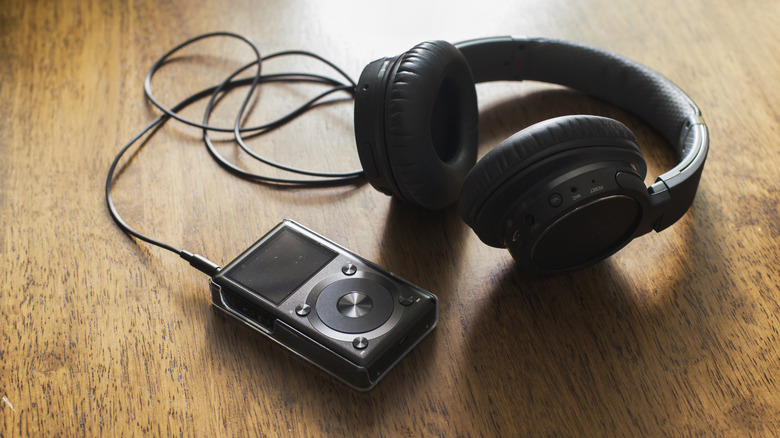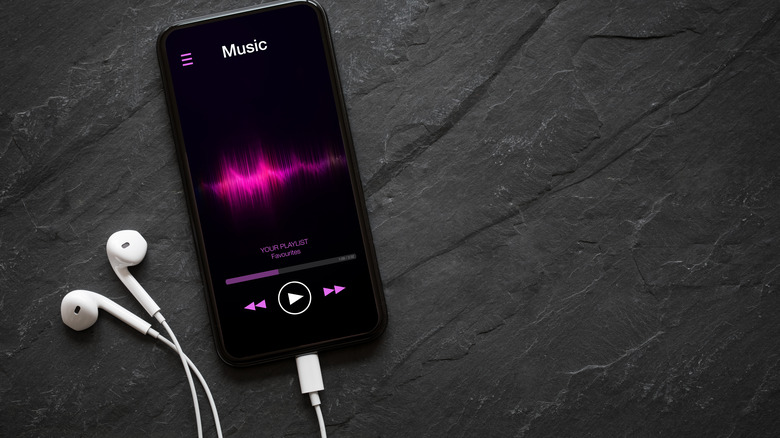What's The Difference Between An MP3 And A WAV?
While millions use streaming services like Apple Music or Spotify to listen to music, there's something about having your own collection of albums that can't be replicated by a streaming playlist. Though the MP3 market was reduced heavily in the streaming era, if you think the market completely died down with the smartphone, you are very mistaken.
Whether it's to listen to in your car or on your phone, an important aspect of digital audio is file format. There's a wide range of audio formats available, which can be confusing for those who aren't audio engineers. If all you want is to download music from YouTube, you shouldn't be expected to learn about bitrates, compression, and other complicated terms. For casual listeners, the format wars boil down the process to one simple question. Which format you should choose when downloading audio: MP3 or WAV? Both are popular, but they're also vastly different and meant for different uses.
What MP3 and WAV mean for you
MP3 and WAV are both audio formats, files that encode audio data. The main difference boils down to compression and loss. At its most basic, WAV is an uncompressed audio file, also known as a lossless format. This means that there is no loss of data (and therefore quality) from the original audio. On the other hand, MP3 is a compressed format with some loss compared to the originally recorded audio track.
What this means for you as an audio consumer is that lossless WAV files take up more space than MP3s. This is what made MP3s more popular when they came out; their smaller size let users save more songs on their hard drive or portable player. The other disadvantage of WAV files in modern days is that — because they are not as prevalent anymore — they might not be supported by your favorite music player.
So, does this even matter? Is there even a noticeable difference between MP3 and WAV files? Well, it depends. If you have high-end audio equipment and a good ear for it, you might notice a distorted effect in MP3 files compared to WAV ones. But for the majority of consumers listening to music on their phones with regular headphones, the difference is minimal. If you do want to try to see if you notice the difference, there are streaming services that offer lossless audio.

